Do you have a child who is sensitive to loud noises? They hear a crash, a buzzer, or another sudden loud noise and scream, cry, or stop in fear? You may wonder why this is happening and what you can do about it.
You may have a child who is just sensitive to loud noises and will grow out of it, or you may have someone with a sensory processing disorder.
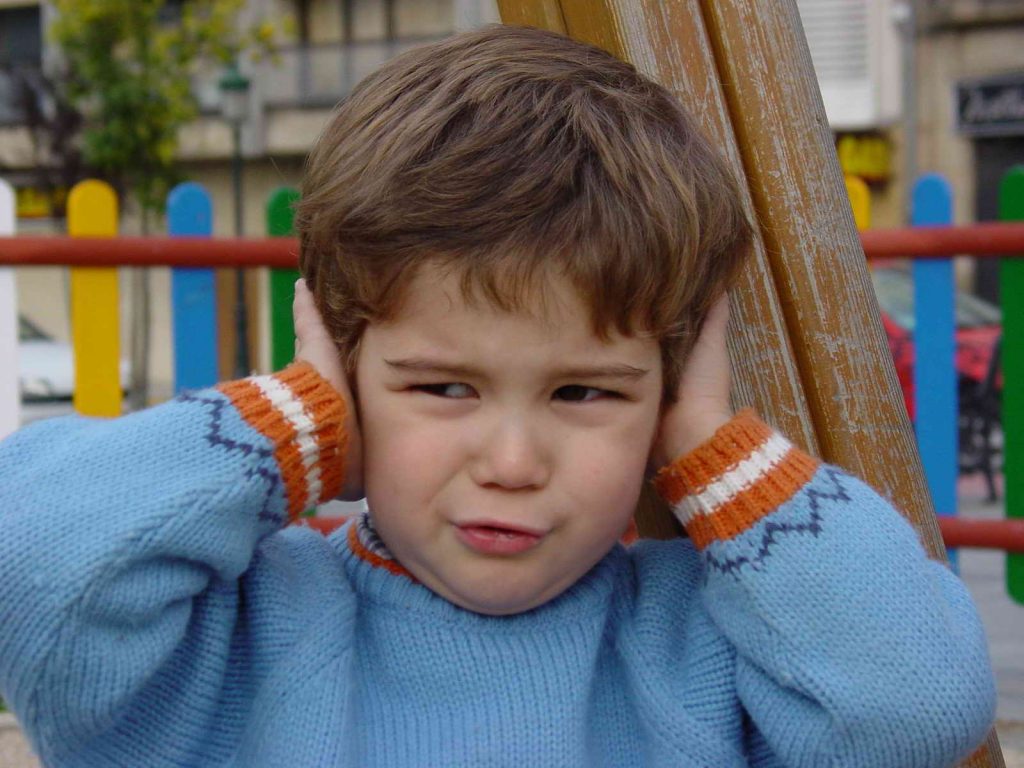
Sensitive Vs. Sensory
At a young age, many kids are highly sensitive to loud noises. Their brains are still developing, and they may not be able to handle a loud noise like an adult can. They may be sensitive to sights, sounds, and other senses too. It may just be a common sensitivity that they will grow out of. However, it may be a sensory processing disorder.
If your child is sensitive to many sounds, it could be the sign of a sensory processing disorder. Their reaction can also determine whether or not they have it. If they wince up, they may just be a sensitive child. If they cry, scream, and have an adverse reaction, it could be something more.
Sensory processing is oftentimes seen at first in toddlers, especially when they are sensitive to loud noises. Sensory processing disorder is shows up when parents notice that children have an unusual reaction to noise. Sensory processing might tie into the autism spectrum disorder, but sensory processing can exist separately.
Kids with sensory processing disorder are not always one in the same, and some kids with sensory processing might react quite severely to troublesome noises.
Some children with sensory processing disorder have issues with sensory processing in ways other than noises. Kids with sensory processing might have trouble with climbing stairs and coordination issues, and some have sensory processing that affects their motor skills. For example, children with sensory processing issues might have trouble tying their shoes, or even fastening their shirt buttons.

Some children with autism spectrum symptoms of sensory processing might have issues with overwhelm too, and their sensory processing kicks into overtime when they’re overstimulated. Autism spectrum disorder does tie into sensory processing in the way of if a child gets overstimulated, they might have issues with sensory processing, and the might have some type of sensory processing disorder.
Some signs and symptoms of sensory processing issues might have issues with auditory processing, in that loud noises make them react. But some of them might have developmental disorder issues that tie into their sensory processing. For example, if their faces get wet or if they feel something foreign on their face, their sensory processing might cause them to react. Some signs and symptoms of sensory processing issues do include throwing tantrums when they’re touched, having reactions to pain, and even problems with coordination.
If they have a sensory processing disorder, they may have autism as well. If you suspect that your child has a sensory processing disorder, you should take them to a therapist. The earlier you can treat it, the better your child can cope with loud noises. You can help your child live a better life this way, and you can treat a child’s other disorder as well.
Sensory Processing Beyond Noises
Sensory processing concerns are more than just noises. Some children have sensory processing in regard to putting items they shouldn’t in their mouth, and having sensory processing issues that come with the taste of things.
Some sensory processing ties into what they feel on their body too. A child with sensory processing issues may not want to be touched, and if they are touched, their sensory processing goes haywire, and they might throw a tantrum or lash out.
Sensory processing even happens with the way a child moves. With improper sensory processing, they might have coordination issues in some aspects of their body.
Not all children with sensory processing issues are on the spectrum, but sensory processing is a symptom of autism spectrum disorder. Processing disorders are also found in children who have ADHA and OCD. Many developmental disorders have sensory processing disorder as a big part of it, and it can sometimes be both sudden, and gradual.
Sensory processing disorders oftentimes involve dramatic mood swings or problems with highly sensitive noises or even highly sensitive situations. For children with highly sensitive ears or even skin and mouth, it can make it hard to learn.
Mood Swings And Sensory Processing Issues
A symptom of sensory processing disorder is sensory processing issues causing major changes, and one of the signs and symptoms of this in sensitive kids is they’ll be doing fine, and then suddenly might throw a tantrum, or have a reaction. This is common in sensitive kids who aren’t sure of how to handle their sensory processing disorder, and for parents who see their child with sensory processing issues, it can be scary, since many parents don’t know how to handle these sensitive kids.
For some sensitive kids, their sensory processing disorder can be planned in a sense. Maybe if they know they’re going to be in a place with lots of highly sensitive noises, they can plan. But for children who don’t know about their sensory processing disorder, it can make them feel powerless, and those children with sensory processing disorder may have no idea how to cope.
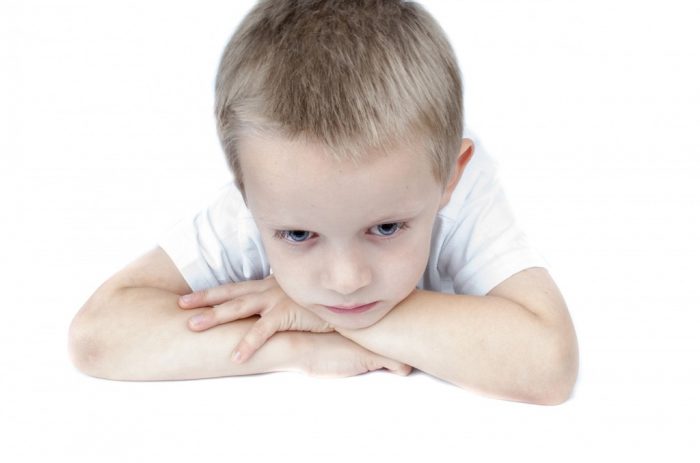
Sensory processing disorder oftentimes can’t really be attributed to one point or another, but mostly involves sensory integration.
With sensory integration, we mean how the senses create results in the body, and can play a part in childhood development. Children with proper sensory integration will be able to hear sounds, and be able to process them. But, with sensory integration issues, it can make sounds that you hear hard to understand.
Learning With Processing Disorders
Some children who suffer from sensory processing disorders also have some kind of learning disorders. This can sometimes involve learning disorders that involve visual processing, or even auditory processing. While some children learn to cope with this by high school, for sensitive kids when they’re young, it impair childhood development.
As a parent, you have to understand learning differences that come with sensory processing disorder. Children with sensory processing disorder might have sensory integration problems that come from learning, so they will need to understand the learning differences they need.
Some children with learning disorders might need to have different ways to learn. Some of the learning differences include reading out loud instead of to themselves, and they might need to draw and do other visuals instead of writing down notes. These learning differences might seem strange to those who don’t have sensory processing disorder, but if a child recognizes these learning differences, they’ll be able to change their process to cater to this.
For parents, understanding these learning differences is important especially to childhood development. If you know of the learning differences your child has, you should inform their teacher, whether they’re young children or older. Sensitive kids with sensory processing disorder may not like loud classrooms, and they may prefer silent studies alone, and if you can cater to that, it will help.
How to Help Your Child
Now, let’s take a look at some ways you can help your child, whether they have a sensory processing disorder or are just sensitive.
- Warn Your Child
One reason kids are sensitive to noises is that the noises are so sudden. Your child may be playing in the gym, and the buzzer rings while they aren’t noticing. Your kid may be in the bathroom, and the hand dryer screams at them.
Give your sensitive child a fair warning, and it may help them be able to process everything. A 5 year old sensitive to loud noises should be warned since this age already goes to school and gets to participate in different activities. Kids with sensory processing disorder do better if they are forewarned of the sounds they might hear, so they can prepare themselves.
- Give Them Earplugs
If they have earplugs, or noise-canceling headphones or earbuds, this may be the best option available. They can help muffle out a loud noise if you know that it’s coming. Just make sure that the earbuds or headphones feel comfortable, and they help to muffle sounds. Kids with sensory processing disorder may want to consider holding onto a pair of ear plugs if they need it, especially if they might deal with loud noises outside the home. You don’t want your child not to hear anything! That could end up being a disaster.
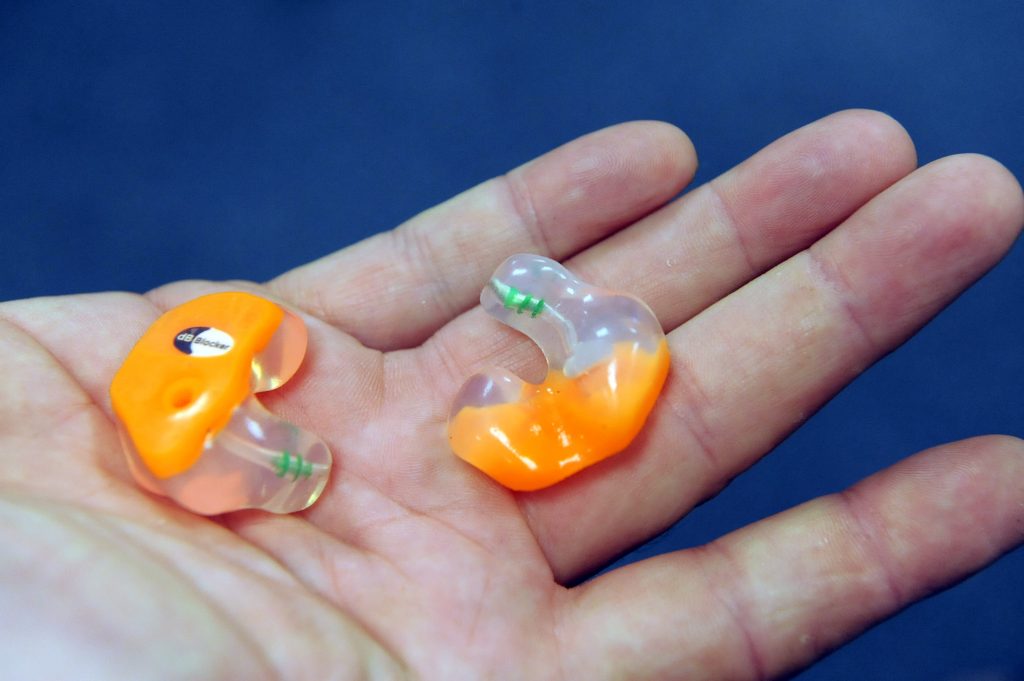
- Play Some White Noise
One way you can be able to reduce a loud sound’s impact is to play some white noise. White noise includes a fan, static, rain sounds, or anything else that provides a calming drown-out to the sounds around them. This may be a good way to help them with their sound sensitivity, and help kids with sensory processing issues sleep and do things.
Put together Home Ideas
Some parents might want to put together home ideas to help with their child’s sensory processing disorder. If you can put in home ideas for their sensory processing disorder, it can help with childhood development.
Some home ideas include if your child is sensitive to something you’re watching, turn it down. Other home ideas include a quiet room with stimulating items to help them calm down, or teaching them how to put their clothes on.
These can help with childhood development because a lot of children struggle with understanding why they feel this way. Sensory processing disorder is scary for both children and adults, but learning to put together fun home ideas that will help them better grasp this will make it possible for a child to live with this, and to make it better for them.

What About Sirens?
One loud noise that can terrify your sensitive child is the sound of sirens. Sirens can blast around town, and while they’re there to help people, your kid may panic. This can especially be a problem if you and your family need assistance, only for your child to run away at the sound of them.
Teach your child about the sirens and give them a plan if they’re scared of them. For example, you may encourage your child to put on earphones and instead look for the lights or other signs that they have to get out of there.
You should talk with the sensitive child’s teachers about other ways they can help during a safety procedure. For example, fire drills are so important, and yet many children with hearing issues will lose it if they hear the sudden fire alarm. Five years old sensitive to loud noises that go to school, should be given extra supervision.
The staff at the school should be able to warn the child beforehand and give them strategies to handle the fire alarm and get out while the other kids are getting out. This can help them should a fire drill be too overwhelming.

About New Experiences
A new experience can be a challenge for your child. For example, if they’re in a new city, the sounds can set them off. You need to introduce your child slowly to these sounds, and if they can’t handle it at first, it’s okay. Plan for your child to have an alternative if they need to get out of a situation with highly sensitive noises.
Patience is key, and so is checking ahead of time. Going to the city at first and seeing if there’s anything that may set them off is a good idea. Try it out and see if you can help your child prepare beforehand.
Boundaries Are Important
One challenge of having a child sensitive to sound has friends who aren’t. They may not understand that the child hates noise, and may play games with loud sounds. It’s important you teach your child that it’s okay to say no or to ask if the sounds can be turned down. Talk with the friend’s parents beforehand as well. If there are any problems with that, they may not be the best friends for your child. Playmates of 5 years old sensitive to loud noises should be wary of this. Childhood development does involve learning to understand your child’s sensory processing disorder, and if your child has certain boundaries they need in place, ignoring them can negatively affect childhood development, and they might not get a good handle on their sensory processing disorder.
Seek Help
We cannot stress this enough. Your child may grow out of the sensitivity with time, and they can handle noises just as well as the other kids. However, if they are having a hard time with loud noises, you may want to talk to a counselor or a therapist. They can help to diagnose your child if there is something more to it. They could help your child come up with unique coping strategies to help them get past their fear of loud noises. If you notice childhood development is affected by this, then they might have sensory processing disorder, so it might be good to seek out a therapist that works with sensory processing disorder to help your child manage.
While this advice is good, some children may still have problems even with earphones, warning beforehand, and every other strategy. A therapist helps by teaching them more ways to cope and can diagnose sensory processing disorders in case there is more to it. Your child may just have sensitive hearing or be a highly sensitive child in general. However, if they have a processing disorder, your child’s doctor or therapist can help diagnose this and put strategies into place that may help.
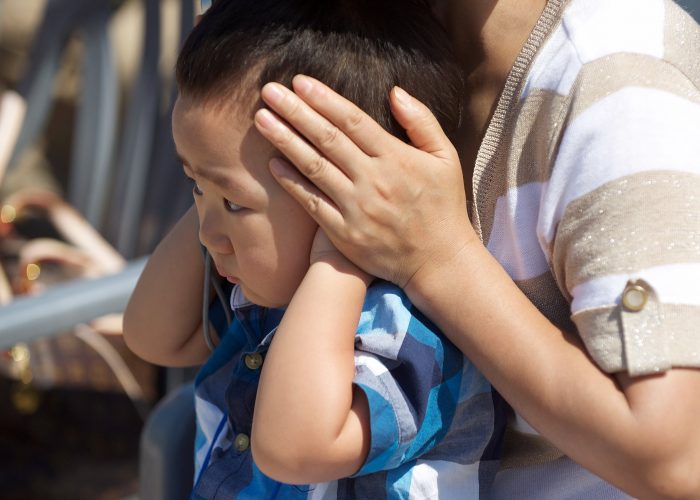
FAQs On 5 Year Old Sensitive To Loud Noises
- Is sensitivity to loud noises a sign of autism?
Sensitivity to loud noises can be a sign of autism. If loud noises seem to alter how your child sees the world, it would not be a bad idea to get them checked out for autism. Having an autistic child is not a bad thing. With proper care and attention, your child can grow up to be a successful adult. Just make note if you think your child may have autism, get them checked out right away. It can explain some of their behaviors, and they can get help learning to cope with these issues.
- Is it normal for toddlers to be afraid of loud noises?
Toddlers and other young children may be afraid of loud noises, which is okay. It is a common occurrence in babies and toddlers, so it is generally nothing to worry about. However, as they get older, if this issue persists, you may want to get them checked out by a doctor just to make sure there is nothing wrong. It is important to teach them, as young children, that loud noises are okay and will happen, so they do not need to worry. Also, let them know what loud noises mean for certain things. This way, when they hear certain noises, they may not get upset if they know what they are for.
- What is auditory hypersensitivity?
Highly sensitive children may suffer from auditory hypersensitivity, which is a type of sensory sensitivity to sounds. When a sensitive child reacts to loud noises, they may have a sensory processing disorder if it affects them to an extreme that it would not normally affect other children.
You can see this by how they react towards various loud sounds. It even sounds that are not loud to you may sound like someone screaming at them, which would mean you have a child with sensory issues. This may be a sign of autism, but it can also be a sign that there is a problem with their ears. They may have a medical condition or a structural inside ear problem, which causes them to have strong reactions to sounds.
- What causes sensitivity to sound?
Sensitivity to sound can be from many different causes, such as an ear condition where there is a structural problem or other related medical conditions. However, it may also be a sign of autism, which you would need to get checked out as soon as possible, regardless if it is autism or an ear condition.
- What does sensory overload feel like?
Sensory overload feels like a heavyweight on your senses, where all you can do is try and breathe and calm yourself down. For adults, it might be a tad bit easier. However, children may have trouble coping with sensory overload. Either way, they are not fun to go through, regardless of age.
- Are children’s ears more sensitive?
Babies, toddlers, and young children will have more sensitive ears because their ear canal is much smaller than adults. The pressure they get from sound can be amplified, unlike an adult’s ear that is much bigger. Loud sounds can be even louder for children.
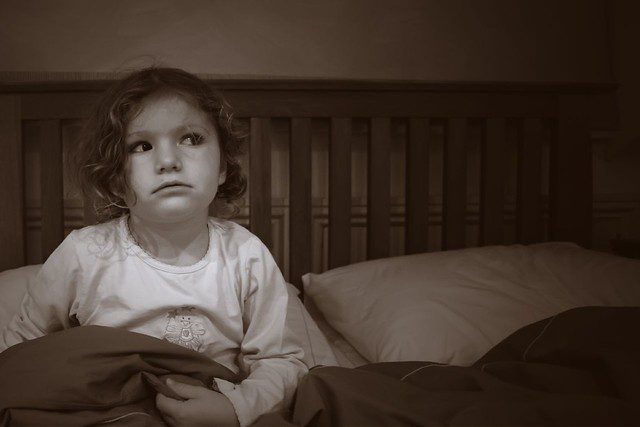
- Can anxiety make you sensitive to noise?
Anxiety, specifically misophonia, can cause adults to suffer from loud noise sensitivity. It feels like a “driving you crazy” sort of sound that you cannot get to stop unless you leave the room it is coming from. Additionally, misophonia may cause rage or panic is the person who is suffering from having a sensory processing disorder. You can have both issues as well, which can be treated by a physician.
- What is hypersensitive hearing?
Hypersensitive hearing, or hyperacusis, is a condition where the patient suffers from various sounds, regardless of its range. Those with this condition can develop it from tinnitus, a head injury, or chronic ear infections. People who have hypersensitive hearing have a hard time with loud noises and a tendency to hear everything regardless of how far away they are from the sound (more about it here).
- Is it normal for a four-year-old to be scared?
Children of all ages may have certain fears that scare them; A 4-year-old is no different from this. It is completely normal for a child four years or younger to be afraid of loud noises, change, and strangers. Nothing abnormal about it, it is just a normal fear that kids eventually will grow out of.
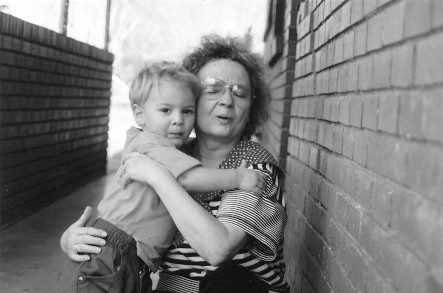
5 Year Old Sensitive To Loud Noises Conclusion
A child with a sound sensitivity isn’t causing drama or needs to grow up. Many children have sensory issues, and empathy and compassion need to be shown if the child wants to succeed. Always talk to your kid about their issues and come up with a way to get past it. It never hurts to help your child overcome any fears they may have, including loud sounds. No matter what their age, make sure you sit down with them and discuss anything that is scaring them. To do otherwise will affect childhood development.
Last Updated on January 31, 2023 by Rejie Salazar
DISCLAIMER (IMPORTANT): This information (including all text, images, audio, or other formats on FamilyHype.com) is not intended to be a substitute for informed professional advice, diagnosis, endorsement or treatment. You should not take any action or avoid taking action without consulting a qualified professional. Always seek the advice of your physician or other qualified health provider with any questions about medical conditions. Do not disregard professional medical advice or delay seeking advice or treatment because of something you have read here a FamilyHype.com.